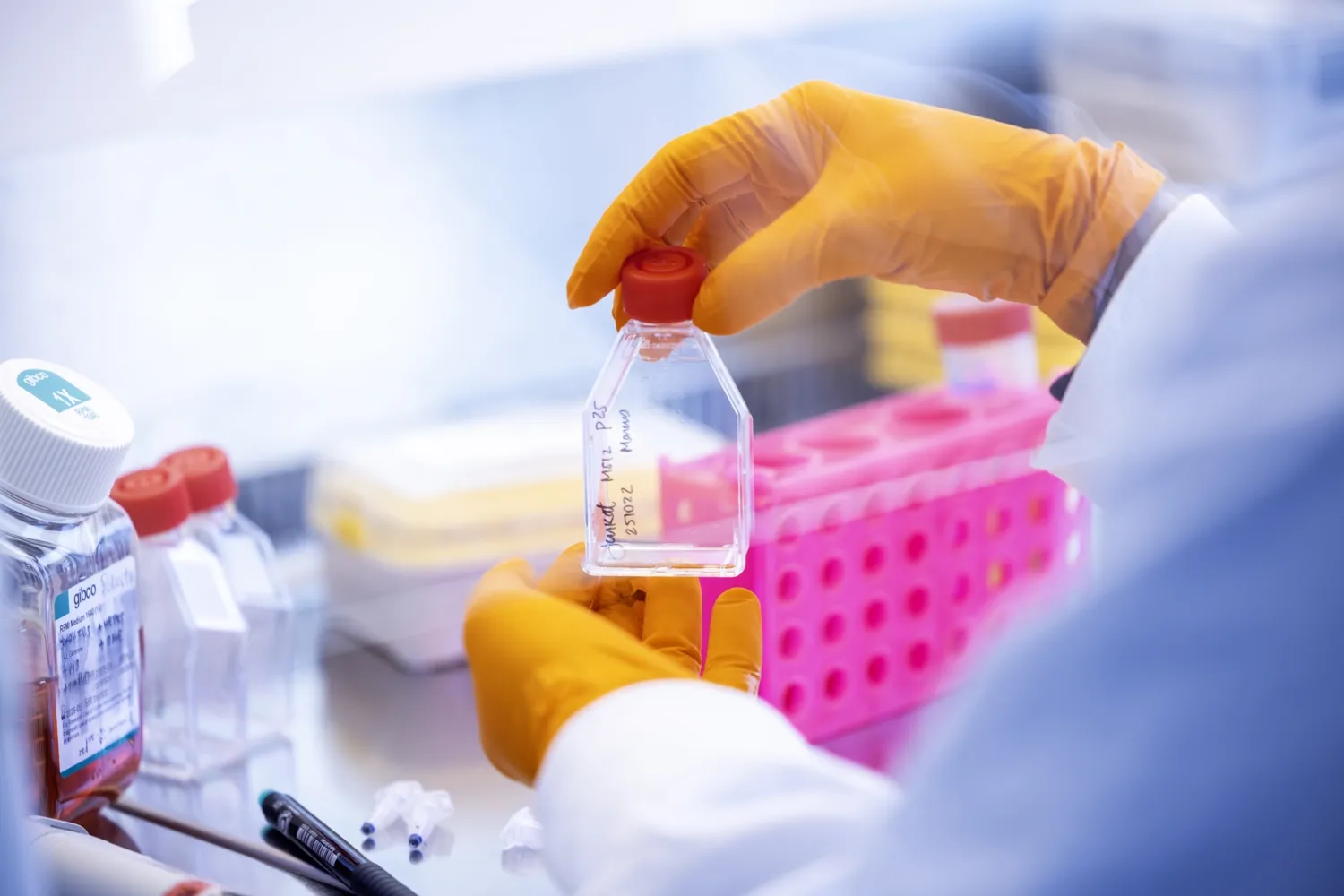New microprotein can help cancer cells overcome stress

In a new study published in the journal Nucleic Acids Research, a research team at Karolinska Institutet has performed a large-scale genetic screen to uncover the hidden roles of tiny proteins, so-called microproteins. Cell stress and protein misfolding are involved in many diseases, including cancer and neurodegenerative disorders, and the study could one day contribute to new therapeutic strategies.

Microproteins, smaller than well-annotated human proteins, are increasingly recognized as important players in how our cells function. It is known that the eukaryotic ribosomes frequently translate alternative, short open reading frames (sORFs) before or after the main ORF of an mRNA, but systematically elucidating the putative function of the resulting microprotein products poses a major challenge.
Simon Elsässer Group at the Department of Medical Biochemistry and Biophysics at Karolinska Institutet, tested the function of these translation products at scale, by expressing more than 11,000 potential microproteins in a pooled screen. They selected cells that coped better with cellular stress and analyzed which microproteins contributed to enhanced stress resistance.

Named PIPPI
One of the discovered microproteins, named PIPPI after its genomic source region, the NPIP gene cluster, was found to protect cells from stress in the endoplasmic reticulum. Proteins in this compartment are typically destined for secretion or presentation on the cell surface; chaperones and quality control factors in the endoplasmic reticulum help ensure that the proteins are properly processed and folded. When the system is overloaded and unfolded proteins accumulate, a cellular stress response is initiated. The researchers showed that PIPPI interacts with key proteins in this stress-response pathway, helping cells maintain balance when challenged.
”This was a tour de force by two generations of postdocs and students in my laboratory, and we got crucial help from colleagues at Karolinska Institutet and Science for Life Laboratory”, says Simon Elsässer, Associate Professor at the Department of Medical Biochemistry and Biophysics at Karolinska Institutet and the study’s last author.
Publication
Pooled overexpression screening identifies PIPPI as a novel microprotein involved in the ER stress response.
Lafranchi L, Raja GL, Arenas AM, Spinner A, Shrung KR, Hornisch M, Schlesinger D, Luzon CN, Brinkenstråhle L, Shao R, Piazza I, Lehtiö J, Branca RMM, Elsӓsser SJ
Nucleic Acids Res 2025 Oct;53(20):
